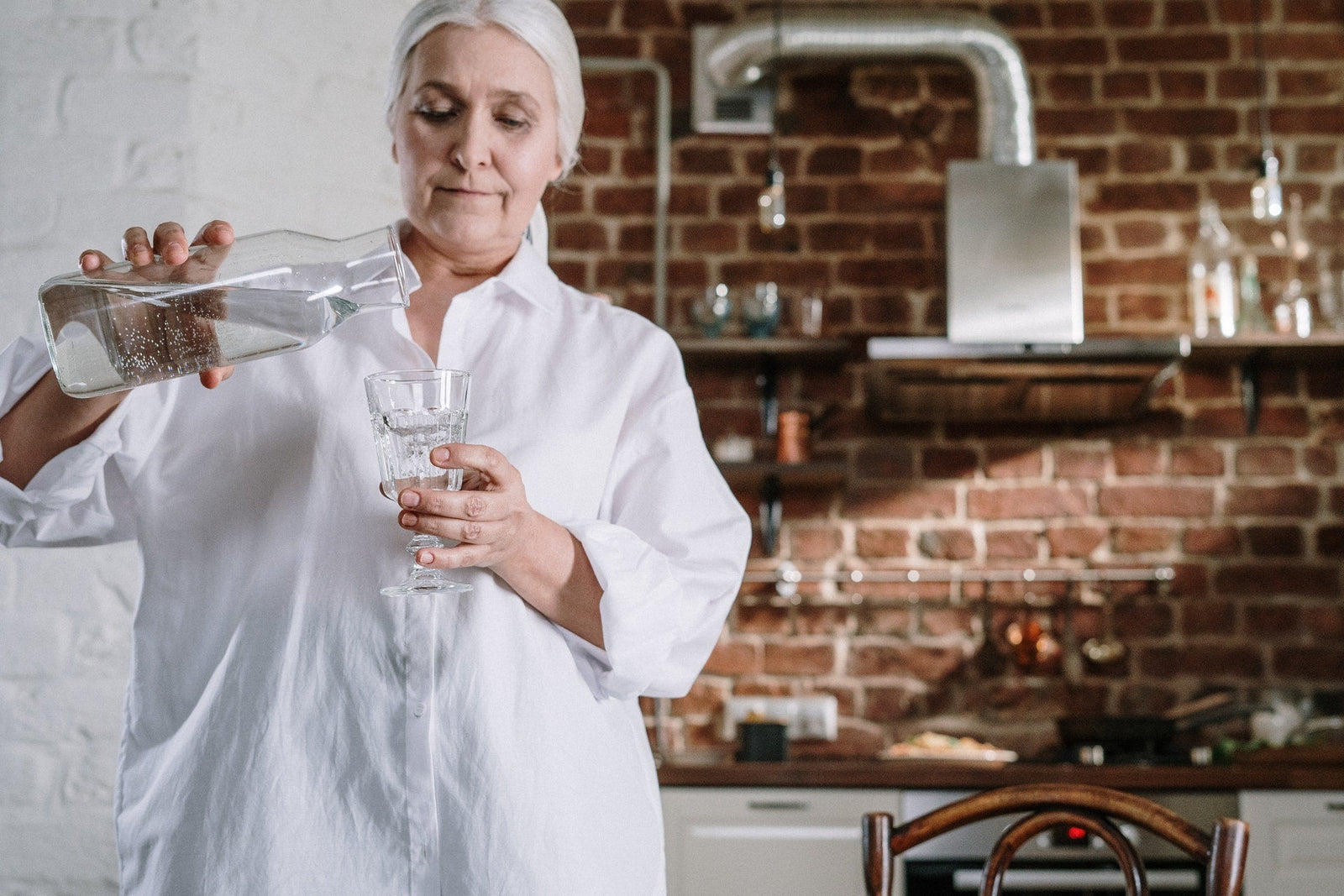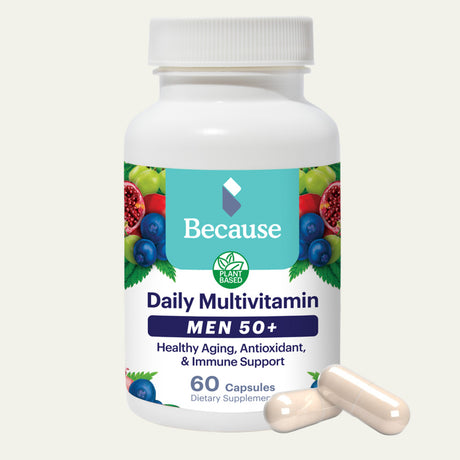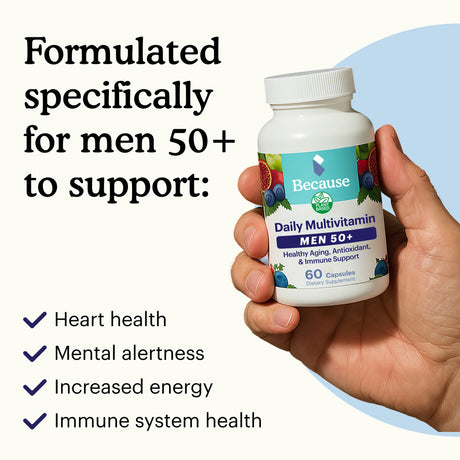As we age, our bodies change in a myriad of ways, so it’s important to learn how to take care of your body so you can continue living the full, active life you love! One of these changes takes place in our body’s fluid reserve. From 19 to 50 years old, our fluid reserves make up anywhere from 50-73 percent of our body weight. However, as we age, our fluid reserves become smaller and shrink to about 47-56 percent.
Regulating your hydration is important so that your body continues to get the water it needs to function. Luckily, there are many easy ways to integrate hydrating practices into your life. This article will demonstrate the importance of hydration to our everyday bodily functions, and how to ensure you are getting enough water so you can take care of your body and keep doing what you love!
Why Hydration is Important
Not only is water a large component of our bodies’ structure, but we also need it for tons of processes that take place in us each day! Here are some of the most important.
Regulation of Body Temperature
Our sweat is our body’s mechanism that helps keep our body temperature cool when we are exercising, in hot weather, or even feverish. If we fail to replenish our bodies with water, however, we won’t have enough sweat to keep our bodies cool and our temperature may rise.
Getting Rid of Waste
Water is also the medium our body uses to get rid of waste! For example, when we sweat, we can release toxins, when we urinate, we release excess nutrients or minerals, and when we have bowel movements, we release the waste molecules left over after our body absorbs the nutrients. Water is what fuels all of these processes in our bodies, and these processes happen every day.
If you fail to replenish your body with water, these processes will slow down. You may become constipated. You may be unable to urinate, which can lead to the development of kidney stones. You may overheat due to an inability to sweat. Hydration is critical to prevent these things!
Circulation
Drinking water also helps with circulation. Water is one of the biggest transport mediums in the body. It flows everywhere, so nutrients, minerals, hormonal messengers, and more are transported through the body via water! Oxygen is also transported this way in the blood. Drinking more water can increase the volume of our blood and help the circulation of oxygen go more quickly and smoothly so oxygen can be transported to our organs and cells for respiration!
In turn, circulation is the foundation for many bodily processes. By drinking water and promoting healthy circulation, you are promoting your overall health and wellness.
Saliva Production
Saliva production is important for a variety of reasons. It breaks down food particles, helps digestion, protects our teeth from decay and infection, and protects our gums from disease. However, dehydration can lead to dry mouth, leading to diseases such as candida, thrush, or stomatitis. Staying hydrated promotes the production of saliva and helps protect our mouths and bodies from infection.
Immune Health
The body’s water supply is also responsible for the absorption of nutrients! When you take a vitamin, supplement, mineral, or eat nutritious food, your body absorbs these nutrients through your water supply. Water also distributes them in the blood to the organs and tissues. Without water, this absorption may not occur or may occur much slower.
Disease Prevention
In addition, staying hydrated can help prevent some diseases and health complications!
Staying hydrated helps prevent hypertension. Hypertension is high blood pressure due to dehydration and lowered blood volume. When you don’t drink enough water, your cells can be dehydrated too. When your cells become dehydrated, your brain causes them to constrict in response, and this raises your overall blood pressure.
Staying hydrated can also prevent joint complications! Water fuels the body’s generation of cells. When we use our joints, they go through normal wear and tear, but this wearing down can cause joint pain. Drinking water helps fuel the process by which we make new cells, and thus can repair the worn-down cartilage of our joints. This provides overall cushion and comfort, so we can keep moving like we used to.
Drinking sufficient water also reduces inflammation! Inflammation is responsible for almost all of the pain we feel, so by drinking enough water, we can keep our bodies healthy and relieve pain!
Mental Health
Eighty-five percent of our brain is made of water, so dehydration can severely affect mental health and cognitive function. Depression and anxiety are sometimes a symptom of dehydration. When our bodies lack water, our brain cells lose water. When our brain cells lose water, they cannot generate the same amount of energy. This results in fatigue, lethargy, depression, and anxiety.
By drinking water, you can not only prevent diseases, but you can promote your mental health and practice self-care!
Tips to Staying Hydrated
Now that you understand why hydration is so important for our bodies, here are tips and tricks on how you can maintain your water intake!
1. Drink Water
While this tip seems pretty obvious, many people are unaware of their need to drink just plain water. In fact, a whopping 80 percent of our water intake is from what we drink—so it’s especially important to monitor our beverages! While a soda every now and then is a nice treat, water is by far the best and easiest way to stay hydrated.
How Much Water Do I Need
Just like every person is different, so are their daily water intake needs. Six glasses with eight ounces of water are typically recommended to maintain your body’s hydration. However, if you are in the heat for most of the day, sweat a lot, or exercise a lot, you probably need a little more than six glasses.
2. Drink Juice
Drinking water isn’t always the tastiest choice, especially if you prefer sweet tea or soda. To take care of your health while intentionally caring for your hydration, you can drink a glass of juice or tea to hydrate as well. Try to look for juices with a fruit or vegetable base. Milk and herbal tea also promote hydration in moderate amounts.
Drinking too much caffeine, however, can cause you to release more urine and thus decrease your hydration. Be sure you are still drinking at least six glasses of water, and then you can incorporate some tastier drinks in moderation!
You can also check the color of your urine and be aware of the signs of dehydration to make sure your body is still getting the water it needs. Less pigment in urine is typically a good measure of hydration. For instance, if your urine is a lighter shade of yellow, you have sufficient water intake. However, if your urine is a dark pigment, this is probably a sign that you are dehydrated.
3. Eat Hydrating Foods
While 80 percent of our water intake is from what we drink, the other 20 percent of our water intake is from what we eat. Foods like watermelon, strawberries, grapefruit, broccoli, cucumbers, celery, tomatoes, radishes, peppers, cauliflower, and spinach have more than a 90 percent water content. These snacks are a great way to incorporate hydration and nutrition into your breakfast, lunch, and dinner!
4. Take a Probiotic
It may seem random, but probiotics can help your body’s hydration. Probiotics are organisms that promote good forms of bacteria in our bodies. These bacteria can actually increase our digestion and promote our absorption of nutrients, including our absorption of water. You can find probiotic supplements over the counter, or you can find probiotics in foods like yogurt, kombucha, or other cultured foods.
Other Tips
If prioritizing hydration is a challenge for you, consider these extra tips.
-
Carry a water bottle with you! It can be easy to forget to drink plenty of water but carrying a water bottle with you can serve as a visual reminder. When you see your water bottle, take a drink!
-
Drink on a schedule. If you think about drinking six glasses of water all at one time, you will probably feel overwhelmed. Instead, try to schedule out hydration goals throughout your day. Maybe try to drink one glass of water in the morning with your breakfast or coffee. Drink another glass when you have a snack or are watching your favorite TV program. Drinking a few in the afternoon, another at dinner, and another before bed will get you through the day feeling hydrated and energized.
-
Avoid sodas and alcohol. Sodas and alcohol, while okay in moderation, can be dangerous for dehydration if consumed too often. Sugar and sodium are important for our bodies, but too much can cause us to lose water from our tissues and dehydrate.
- Eat fruits and veggies. Another great and delicious way to get extra hydration is to eat fruits and vegetables! You can even make a smoothie with your favorite fruits and veggies, milk, and some yogurt to promote hydration and nutrition.
Conclusion
Our bodies need water for a number of processes including regulation of temperature, digestion, circulation, immune health, and mental health. However, sometimes prioritizing hydration is a challenge. Whether we get too busy to remember to drink water or just prefer other drinks instead, becoming dehydrated can lead to serious health conditions.
By incorporating these tips and tricks into your life, you can ensure that you get enough water each day and keep your body healthy. For more tips on how to stay healthy as you age, check out our blog.
Sources:
10 Tips for Staying Hydrated During the Summer Heat (frederickhealth.org)














